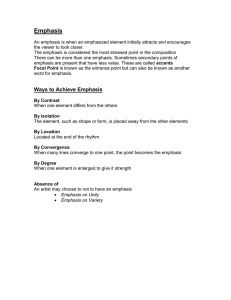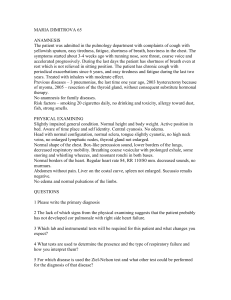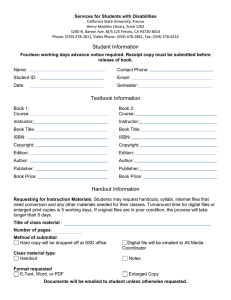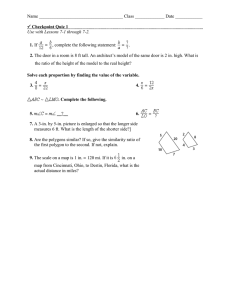Enlarged heart - British Heart Foundation
advertisement
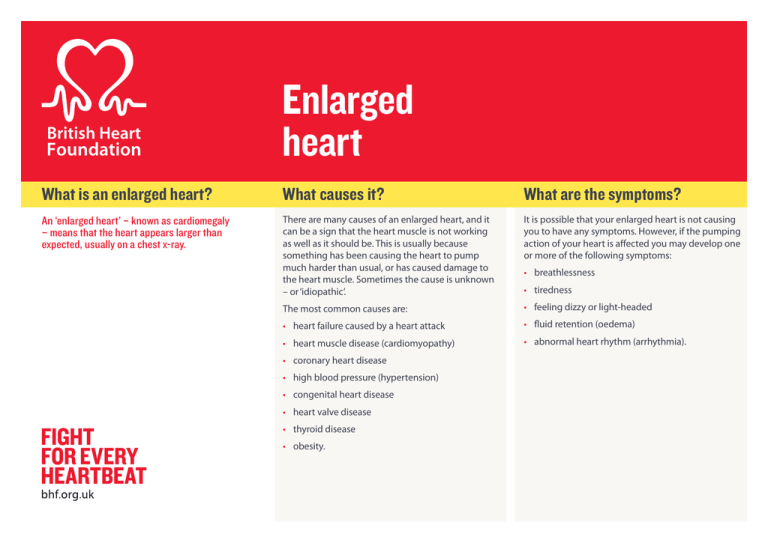
Enlarged heart What is an enlarged heart? What causes it? What are the symptoms? An ‘enlarged heart’ – known as cardiomegaly – means that the heart appears larger than expected, usually on a chest x-ray. There are many causes of an enlarged heart, and it can be a sign that the heart muscle is not working as well as it should be. This is usually because something has been causing the heart to pump much harder than usual, or has caused damage to the heart muscle. Sometimes the cause is unknown – or ‘idiopathic’. It is possible that your enlarged heart is not causing you to have any symptoms. However, if the pumping action of your heart is affected you may develop one or more of the following symptoms: The most common causes are: • f eeling dizzy or light-headed • h eart failure caused by a heart attack • fl uid retention (oedema) • h eart muscle disease (cardiomyopathy) • a bnormal heart rhythm (arrhythmia). • c oronary heart disease • h igh blood pressure (hypertension) • c ongenital heart disease • h eart valve disease • t hyroid disease • o besity. • b reathlessness • t iredness Heart Helpline What tests will I need? Will I need treatment? Our cardiac nurses and heart health advisors are here to answer your questions about anything heart related. If you have had a chest x-ray that shows you may have an enlarged heart you will usually be sent for an echocardiogram (similar to an ultrasound). It is difficult to take a precise measurement of the heart size using only an x-ray. Whether or not you need treatment will depend on the underlying cause of your enlarged heart, and whether you have any symptoms. Call us on 0300 330 3311 Similar cost to 01 or 02 numbers. Lines are open 9am - 5pm Monday to Friday. This information does not replace the advice that your doctor or nurse may give you. If you are worried about your heart health in any way, contact your GP or local healthcare provider. Whereas an echocardiogram produces a video image of your beating heart and each part can be accurately measured and examined more closely. Treatment may include taking medicines, for example to lower your blood pressure and reduce the amount of work your heart needs to do. You will also be encouraged to make healthier lifestyle choices – for example stopping smoking and getting regular exercise. You may even need surgery, for example if you have a problem with one of your heart valves and it needs to be repaired or replaced. ©British Heart Foundation 2014, a registered charity in England & Wales (225971) and Scotland (SC039426)

